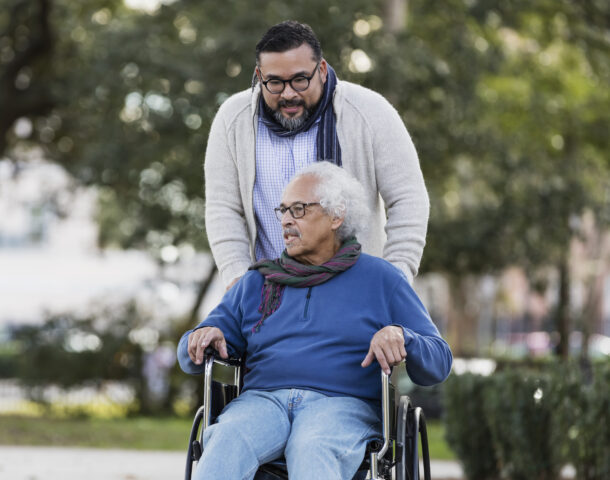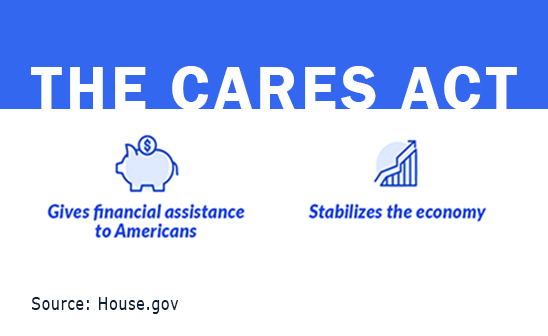Filter


Diverse Population Uses Nursing Homes Less
Since the 1980s, the share of the U.S. population over 65 has grown steadily. At the same time, the share of low-income older people living in nursing homes has declined sharply. New research by the University of Wisconsin’s Mary Hamman finds that this trend is, to some extent, being driven by an increasingly diverse population of Hispanic, Black, Asian, and Native Americans. They are more likely to live with an adult child or other caregiver than non-Hispanic whites, due, in some cases, to cultural preferences for multigenerational households. Nursing home residence is also declining among older white Americans. However, in contrast to the Black population, whites are increasingly moving into assisted living facilities. This creates what Hamman calls a “potentially…
February 25, 2021
Converting a Desire to Save into Saving
Save. Budget. Spend less on takeout. “We know what we need to do,” financial behavior expert Wendy De La Rosa says. “The question is how to do it.” Consider one of the pandemic’s lessons for workers: it’s important to build up an emergency fund for a potential financial catastrophe. But how to translate that into action? De La Rosa, who founded the Common Cents Lab to help low-income workers manage their limited resources, has conducted research showing that people can overcome the psychological barriers to saving by changing the financial cues around them. In this Ted video, she provides three practical tips, one of which she applied to her own life. After spending $2,000 in a single mont…
February 23, 2021
Big Picture Helps with Retirement Finances
The prospect of retiring opens a Pandora’s box of questions. But one big question dominates all the others: How will I manage my finances when I retire? This is a vexing problem, and baby boomers could use some help thinking it through. To ease the process, a team at UCLA and Cornell University led by David Zimmerman, a UCLA doctoral student, created an online decision tool. In an experiment, they found that the tool might help future retirees understand how to smooth out their income over many years and make their savings last. The results are preliminary, and the researchers are refining their analysis. But for the initial experiment, they recruited 400 people, ages 40 through 63. The participants wer…
February 18, 2021
Where Will You Retire? This Might Help
The toughest part of Paul and Cathy Brustowicz’s decision to relocate from New Jersey to Summerville, South Carolina, was leaving behind their two grandchildren. The retirees also miss the theater and dinners in Manhattan. A big advantage of South Carolina, though, is “more house for the money,” Paul Brustowicz said. The couple also had a few old friends who were already living there, and the warm weather is nice, though it, too, involves a tradeoff: high summer humidity and hurricane season. As for amenities, it’s a quick drive to Charleston for dinner, the airport, and the Medical University of South Carolina. “Overall, it was the right move for us,” he said about the 2012 relocation. South Carolina ranked a very…
February 16, 2021
Billionaires Got Much Richer in Pandemic
In the COVID-19 downturn, this blog has had a steady supply of stories and statistics about the damage being done to low-income and middle-class families. That’s one perspective on the pandemic. The growing billionaire class is another one. Since last March, the nation’s 660 billionaires have added more than $1 trillion to their wealth – a 39 percent increase. Their combined net worth is now $4 trillion, which is nearly double the $2 trillion held by the 165 million Americans in the bottom half, according to the Institute for Policy Studies’ new report. “It’s a troubling sign that too much of society’s wealth and income is flowing upwards to that small group of people,” Chuck Collins of the Institute for…
February 11, 2021
Readers See Pros, Cons to Paid-off Mortgage
Baby boomers love to discuss this age-old question: Should I pay off the mortgage before retiring? Our blog readers fell into two camps in their comments on a recent article. Some made an emotional argument – that a mortgage-free retirement makes them feel secure. The other camp argued that paying off the mortgage does not make financial sense. The article, “Boomers Repairing their Mortgage Finances,” described research showing that boomers have sharply cut what they owe on their mortgages by paying extra in the years since the housing market bust. People naturally pay more of this debt as they age. But the boomers’ rapid payoffs partly explain why 40 percent to 50 percent of Americans in their 60s no longer…
February 9, 2021
CARES Act’s Loan Forbearance is Working
As the pandemic was sinking into our collective consciousness a year ago, Congress, fearing economic calamity, allowed Americans to temporarily halt their mortgage and student loan payments. By the end of October – seven months after President Trump signed the Coronavirus Aid, Relief, and Economic Security (CARES) Act – Americans had postponed some $43 billion in debt, including car loans and credit cards, which many lenders deferred voluntarily. Billions more are still being added to the total amount in forbearance. Fast action in Congress “resulted in substantial financial relief for households,” says a new study by researchers at some of the nation’s top business schools. Their recent analysis found that the assistance went where it was needed – to “financially…
February 4, 2021
Wisconsin Finds Owners of Lost Pensions
Some people lose old retirement accounts because they forget about them. Others don’t want the hassle required to retrieve small amounts. And workers who change jobs fairly often can leave a lot of small accounts in their wake. As a result, millions of dollars of retirement wealth – in pensions, 401(k)s, IRAs, profit-sharing plans, and annuities – sit in state repositories of unclaimed property. So how can workers and retirees be united with their long-lost money? To answer this question, a new study contrasts what has happened to unclaimed retirement accounts in two states with vastly different approaches to handling them: Wisconsin and Massachusetts. Wisconsin in 2015 began to use Social Security numbers to automatically match up and return misplaced…
February 2, 2021
Smaller Pensions Don’t Spur More Saving
Most state and local governments provide their employees with traditional pensions, which are nice to have. But not all pensions are equally generous. The monthly benefits vary from one place to the next, and some governments have cut costs by reducing pensions for their newest hires. Further, one in four public-sector workers aren’t currently covered by Social Security, because their employers never joined the system. A logical back-up plan for these workers would be to contribute money to the supplemental savings plans that most public-sector employers provide. When the workers retire, they can add the money saved in their accounts – a 401(k), 401(a), 457 or 403(b) – to their pension benefits. But researchers at the Center for Retirement Researc…
January 28, 2021
ACA Eased the Financial Burden on Families
The Affordable Care Act (ACA) has reduced families’ medical costs significantly. The ACA’s main goal was to provide coverage for the first time to workers who lack employer health insurance. But the expansion of free or subsidized health care to millions of parents with low and modest incomes has improved their financial stability and freed up money for their families’ other critical needs, concluded a new University of California at Davis study. The main way the ACA expanded coverage was by giving states the option of providing Medicaid to workers earning up to 138 percent of the federal poverty level. The law also increased the number of children with health insurance, because federal and state outreach during the Medicaid expansion…
January 26, 2021
Struggling Workers’ Financial Woes Mount
The COVID-19 economy is really a tale of two worlds. The stock market and housing market have largely shrugged off the economic slowdown. But severe financial problems are brewing for millions of workers who have lost their jobs or are earning less in a lackluster economy. The assistance passed by Congress will certainly help. Still, half of all workers reported in a Transamerica Institute survey late last year that they are experiencing at least one employment disruption, whether a layoff, reduced work hours, shrinking paychecks and commissions, or an early retirement. A crisis also looms for thousands of renters if the Centers for Disease Control allows its eviction moratorium to expire at the end of this month. Paying taxes is…
January 21, 2021
Is Job Automation Connected to Disability?
Manufacturing workers file more applications to the federal disability program than any other workers. What seems new is that jobs like administrative assistant and retail worker aren’t that far behind. Is one possible explanation that the computerization of once-routine occupations like these plays a role in decisions to apply for disability benefits? Consider the example of a retail worker with a bad back who is laid off, or perhaps she quits because she struggled to handle the cognitive challenges of increased automation. Even simple tasks such as processing customer transactions or locating a product at another store now require computer skills. And the worker’s skills may not match up with the technical qualifications needed to find a new job in…















